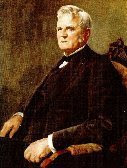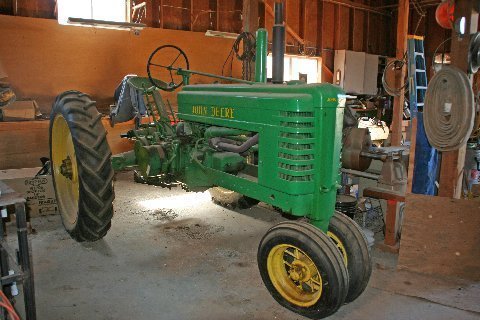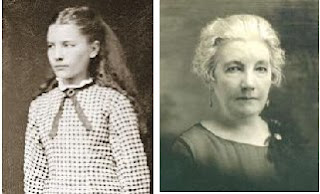Good 30º frozen white morning.
Yesterday we had a lot of fog, here and in Grants Pass........
We topped at 57º.
Picture of the Day .... he's on the windshield 
Interesting about grasshoppers...........
Grasshoppers are a group of insects belonging to the suborder Caelifera. They are among what is possibly the most ancient living group of chewing herbivorous insects, dating back to the early Triassic around 250 million years ago.
Grasshoppers are typically ground-dwelling insects with powerful hind legs which allow them to escape from threats by leaping vigorously. As hemimetabolous insects, they do not undergo complete metamorphosis; they hatch from an egg into a nymph or "hopper" which undergoes five moults, becoming more similar to the adult insect at each developmental stage. The grasshopper hears through the tympanal organ which can be found in the first segment of the abdomen attached to the thorax; while its sense of vision is in the compound eyes, the change in light intensity is perceived in the simple eyes (ocelli). At high population densities and under certain environmental conditions, some grasshopper species can change color and behavior and form swarms. Under these circumstances, they are known as locusts.

Grasshoppers are plant-eaters, with a few species at times becoming serious pests of cereals, vegetables and pasture, especially when they swarm in the millions as locusts and destroy crops over wide areas. They protect themselves from predators by camouflage; when detected, many species attempt to startle the predator with a brilliantly-colored wing-flash while jumping and (if adult) launching themselves into the air, usually flying for only a short distance. Other species such as the rainbow grasshopper have warning coloration which deters predators. Grasshoppers are affected by parasites and various diseases, and many predatory creatures feed on both nymphs and adults. The eggs are subject to attack by parasitoids and predators.
Grasshoppers have had a long relationship with humans. Swarms of locusts can have devastating effects and cause famine, having done so since Biblical times. Even in smaller numbers, the insects can be serious pests. They are used as food in countries such as Mexico and Indonesia. They feature in art, symbolism and literature. The study of grasshopper species is called acridology.
Grasshoppers have the typical insect body plan of head, thorax and abdomen. The head is held vertically at an angle to the body, with the mouth at the bottom. The head bears a large pair of compound eyes which give all-round vision, three simple eyes which can detect light and dark, and a pair of thread-like antennae that are sensitive to touch and smell. The downward-directed mouthparts are modified for chewing and there are two sensory palps in front of the jaws.
Most grasshoppers are polyphagous, eating vegetation from multiple plant sources, but some are omnivorous and also eat animal tissue and animal faeces. In general their preference is for grasses, including many cereals grown as crops. The digestive system is typical of insects, with Malpighian tubules discharging into the midgut. Carbohydrates are digested mainly in the crop, while proteins are digested in the ceca of the midgut. Saliva is abundant but largely free of enzymes, helping to move food and Malpighian secretions along the gut. Some grasshoppers possess cellulase, which by softening plant cell walls makes plant cell contents accessible to other digestive enzymes.
If you want to read a lot more, go here: https://en.wikipedia.org/wiki/Grasshopper
From Mr. Food
If you've never experimented with Asian-style Ramen noodles, you're in for a treat. Our budget-friendly and quick-cooking Skillet Ramen Noodles can be on the table in no time.
- 2 tablespoons vegetable oil
- 2 (3-ounce) packages chicken-flavored Ramen noodles
- 2 cups water
- 1 cup frozen peas and carrots
- In a large skillet, heat oil over medium-high heat.
- Break up noodles and add to skillet, cooking until browned, stirring constantly.
- Add noodle seasoning packets, water, and vegetables; cook until all water is absorbed and noodles are tender, stirring occasionally. Serve immediately.
***To make this more of a meal, add some cooked, chunked chicken. Yum!
Special birthday today... my friend Jennifer Murphy is celebrating. HAPPY BIRTHDAY JENNIFER!!
^ Here she is with her Mike and her late love dog, Heaven.
Historically this date......
I have a few... original one from 1930's that was my family's with arrow... with the original game pieces made from metal and the hotels made from wood....
.... sad for all the Cuban cigar smokers!
And births this date include...
This was Jerry's 1941 John Deere that my high school friend, Jon Harting, bought. Thanks Jon, for taking such good care of Jerry's pride and joy!
....it's a birth date for writers!
All I know. Nuff said. Have a good Tuesday. Ciao.
xo Sue Mom Bobo
On February 7th, National Fettuccine Alfredo Day celebrates one of the world’s favorite ways to enjoy a plate of fettuccine.
Fettuccine Alfredo enjoys a history as rich as its flavor. Created in 1908, fettuccine was made out of love and concern by an Italian restaurateur. Alfredo di Lelio’s concern for his pregnant wife’s lack of appetite caused him to put his talents to work. The birth of their first son depended on it. His recipe of noodles, cheese, and butter not only encouraged her to eat but she also inspired him to put it on the menu, too. Since then, the century-old dish has been satisfying pasta lovers around the world ever since.
Not only that but fettuccine alfredo lovers experiment with the dish in several ways. Add shrimp, mushrooms or spinach. The meal also pairs well with other vegetables and proteins, too. Cut the richness with a white wine and finish with a fruit dessert.
HOW TO OBSERVE
Celebrate with a big dish of fettuccine Alfredo! Invite friends and family to join you, too. As you know, it’s not a celebration if you don’t. Make it yourself (we provide a recipe). Or, go to your favorite Italian restaurant. When you do, be sure to give them a shout out.
NATIONAL FETTUCCINE ALFREDO DAY HISTORY
The earliest printed record of the observance we’ve found is a January 26, 2005, Akron Beacon Journal article listing upcoming February food holidays. Several newspapers across the nation follow suit, including the list in their food pages. But, none of them included their source or how long the day has been celebrated. However, the grandson of Alfredo Di Lelio contacted National Day Calendar in 2015 to provide the history behind the delicious pasta dish. We provide his letter below.
From Ines Di Lelio, grandson of Alfredo di Lelio
The following is the History of Alfredo di Lelio, who created in 1908 “Fettuccine All ‘Alfredo” (Fettuccine Alfredo). It’s now served by his nephew Ines Di Lelio, at the restaurant “Il Vero Alfredo” – “Alfredo Di Roma” in Rome, Piazza Augusto Imperatore 30.
“With reference of your article (for which I thank you), I have the pleasure to tell you the history of my grandfather Alfredo Di Lelio, who is the creator of ‘Fettuccine all’Alfredo’ (‘Fettuccine Alfredo’) in 1908 in the ‘trattoria’ run by his mother Angelina in Rome, Piazza Rosa (Piazza disappeared in 1910 following the construction of the Galleria Colonna / Sordi).
This ‘trattoria’ of Piazza Rosa has become the ‘birthplace of fettuccine all’Alfredo’. More specifically, as is well known to many people who love the ‘fettuccine all’Alfredo’, this famous dish in the world was invented by Alfredo Di Lelio concerned about the lack of appetite of his wife Ines, who was pregnant with my father Armando (born February 26, 1908). Alfredo di Lelio opened his restaurant “Alfredo” in 1914 in Rome and in 1943, during the war, he sold the restaurant to others outside his family.”
Staying in the Family...
“In 1950 Alfredo Di Lelio decided to reopen with his son Armando his restaurant in Piazza Augusto Imperatore n.30 ‘Il Vero Alfredo’ (‘Alfredo di Roma’), whose fame in the world has been strengthened by his nephew Alfredo and that now managed by me, with the famous “gold cutlery” (fork and spoon gold) donated in 1927 by two well-known American actors Mary Pickford and Douglas Fairbanks (in gratitude for the hospitality). See also the website of ‘Il Vero Alfredo’.(with news also about franchising).
I celebrate every year (as this year) in my restaurant (founded by my grandfather Alfredo Di Lelio) the USA Holiday of. fettuccine all’Alfredo (February 7). I must clarify that other restaurants “Alfredo” in Rome do not belong to the family tradition of ‘Il Vero Alfredo – Alfredo di Roma’ and I inform you that the restaurant ‘Il Vero Alfredo –Alfredo di Roma’ is in the registry of ‘Historic Shops of Excellence’ of the City of Rome Capitale.
Best regards Ines Di Lelio”





















No comments:
Post a Comment